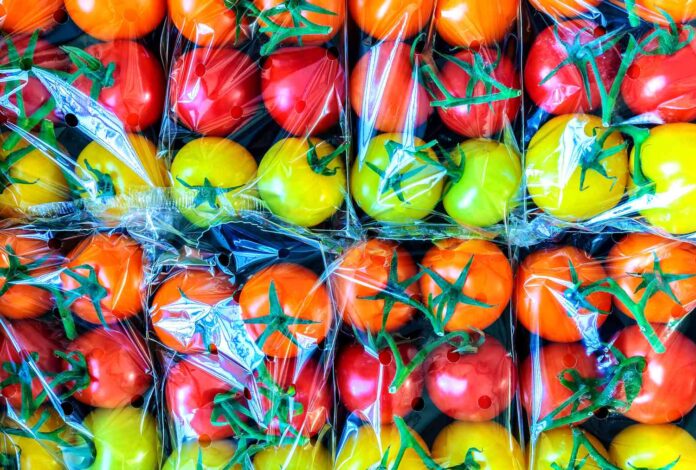:max_bytes(150000):strip_icc():format(jpeg)/More-Than-Half-of-All-Plastic-Food-Packaging-Is-Totally-Unnecessary-FT-BLOG1024-03-fe6c1cfc17f34b3a88a2b77c063d5302.jpg)
There’s no doubt in anyone’s mind that plastic pollution is a problem. As the United Nations noted, “46% of plastic waste is landfilled, while 22% is mismanaged and becomes litter. Unlike other materials, plastic does not biodegrade. It can take up to 1,000 years to break down, so when it is discarded, it builds up in the environment until it reaches a crisis point,” it pointedly added, “This pollution chokes marine wildlife, damages soil and poisons groundwater, and can cause serious health impacts.” It’s critical to address this growing issue — and that could begin by illuminating useless plastic packaging.
A new research paper commissioned by paper packaging firm DS Smith found that more than half (51%) of packaging on grocery items in the United Kingdom could be reduced or replaced entirely.
To come to this conclusion, the researchers undertook a field analysis, which included an audit of plastic usage on 1,500 food and drink products across the top five food retailers by market share in six European countries (France, Germany, Italy, Spain, Poland, and the UK).
It used a “basket analysis,” which showed the “proportion of routinely purchased items in a typical grocery shopping basket that contain plastic packaging.” The basket included 50 items that are regularly purchased by the typical household across each of the markets studied. It also included a “store inventory analysis,” which showed the “proportion of a range of food and drink items packaged in plastic across different areas of the store. It then brought together the data to come up with its plastic packaging index, which gives a weighted average of plastic usage across “both a representative shopping basket and product range within stores.”
After looking at all the data, the team found that most of the plastic packaging in an average basket came from processed foods, which included ready-meals and meal kits (90%); bread, rice, and cereals (89%); dairy products (83%); and meat and fish (80%).
Additionally, the research found that the UK is the “most reliant on plastic packaging, with 70% of all food and drink items on British shelves containing plastic,” compared to Spain, which came in a close second at 67%, followed by Italy and Germany with 66% each, Poland at 62%, and France at 59%.
Beyond this analysis, the team also conducted a business-to-business survey in June 2024, gathering insights from 300 food and drink industry professionals, all working in senior positions related to packaging. It was found that almost all (98%) of respondents said their companies are committed to reducing plastic packaging — with 60% of those having less than two years to reach their voluntary targets. Two in five (40%) of respondents said that the cost of raw materials is the biggest obstacle to getting to their target, as well as fears that consumers will not like the changes. Seven in ten (72%) respondents said they believe consumers “would not want to pay extra for sustainable packaging,” and nearly two-thirds (65%) believe consumers do not want to trade convenience for sustainability.
DigiPub / Getty Images
However, those fears may be unfounded. According to a 2023 study by the Harvard Business Review, “When Gen Z and Millennial customers believe a brand cares about its impact on people and the planet, they are 27% more likely to purchase it than older generations are — a clear measure of sustainability’s power to drive buying decisions in this group.” And, as the study noted, the purchasing power of these two generations will surpass Baby Boomers by 2030, with up to $68 trillion in wealth transferring from the older generation to the younger set, making marketing to these age groups vitally important.
And, as Miles Roberts, DS Smith’s chief executive, shared with Materials Recycling World, reducing our impact on the planet is simply the right thing to do. “We think the Government can and should be more demanding of us all,” Roberts said. “Phasing out certain plastics to help create a level playing field that encourages innovation, investment and generates healthy competition to replace plastic.”



